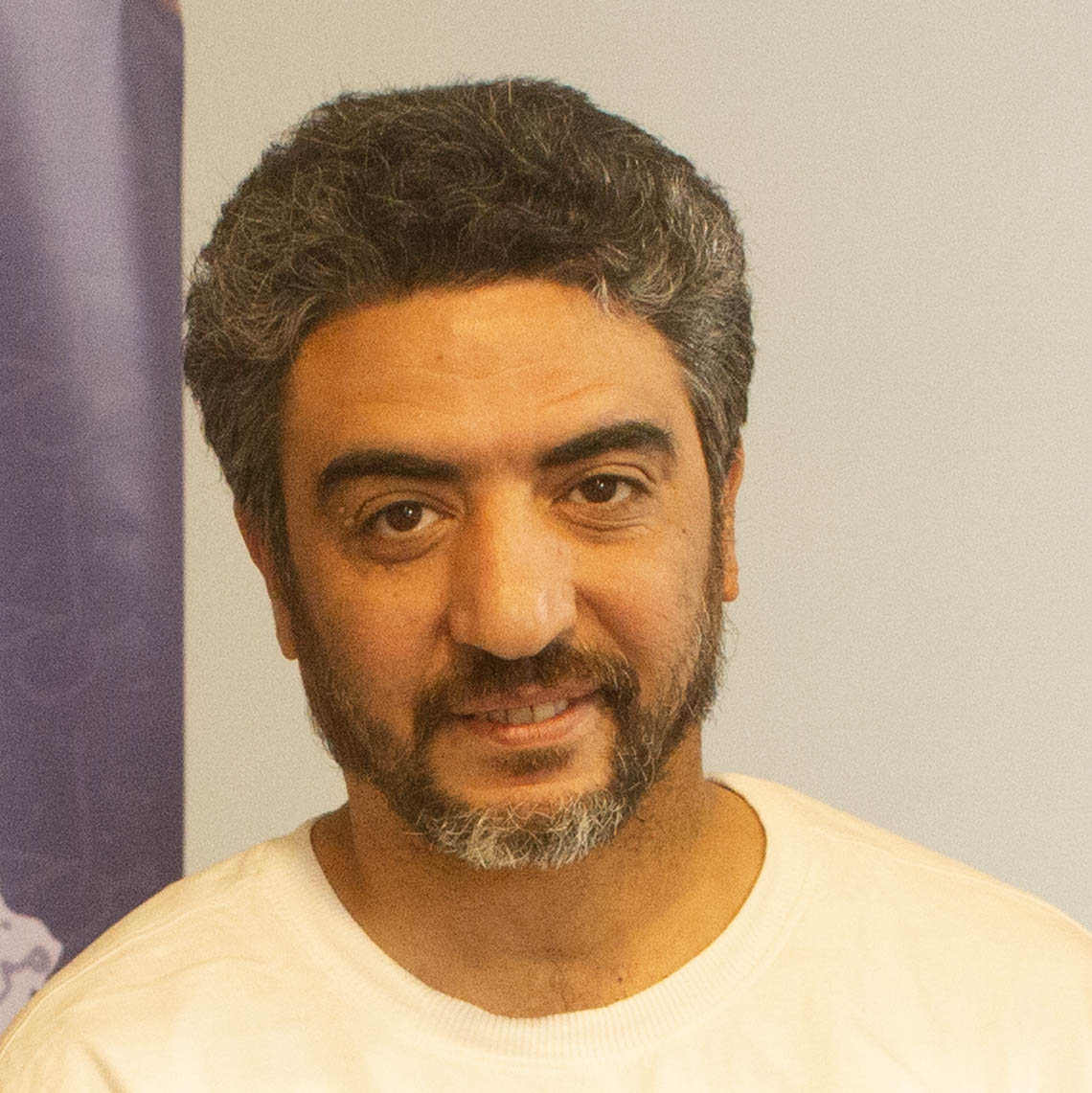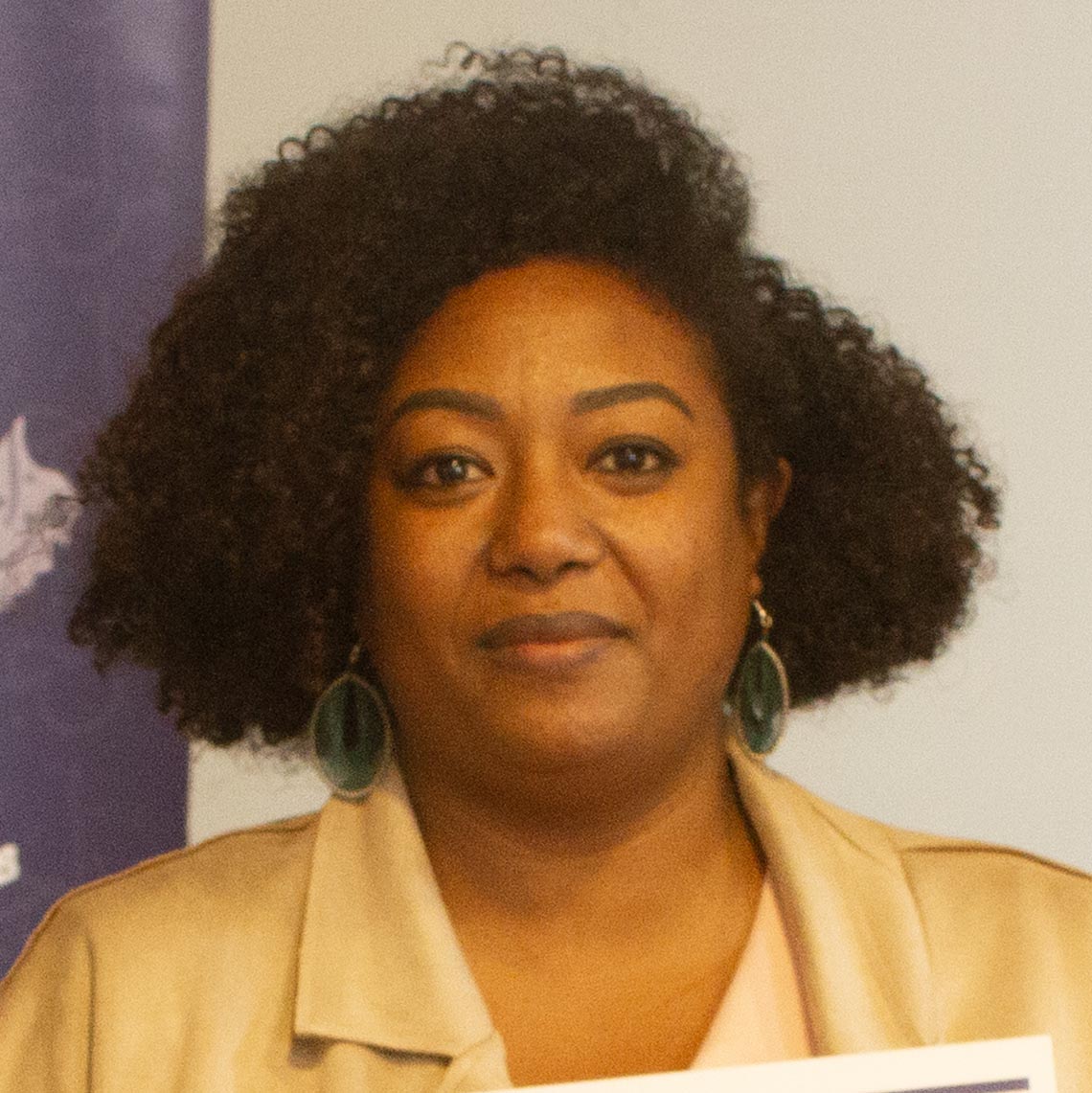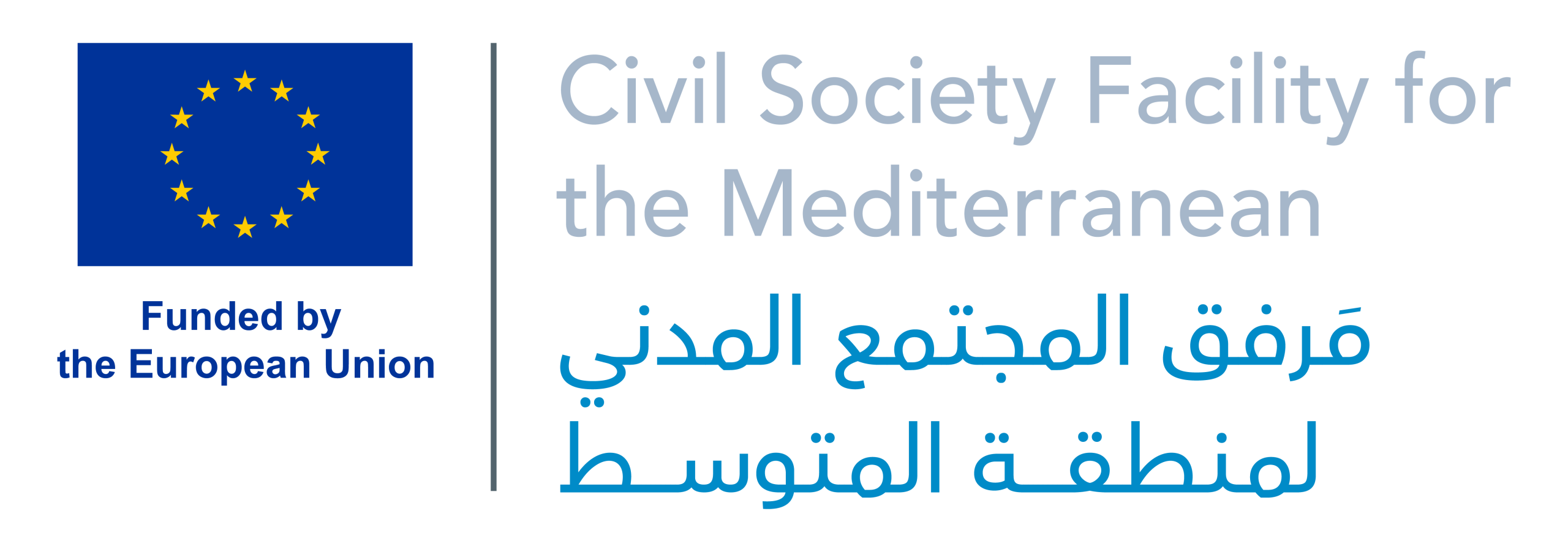
ما هو تمكين؟
- تحدي الموروثات والتفسيرات التقليدية: عبر تقديم سرديات نظرية وعملية بديلة؛ يسعى البرنامج لمواجهة وتحليل الإشكاليات الحقوقية بمنظور جديد وشجاع.
- التحليل المعمق: دراسة الظروف السياسية والأيديولوجية والثقافية والاقتصادية والتاريخية والمجتمعية التي تُستخدم كمبرر للتخلي عن قيم ومبادئ حقوق الإنسان.
- تقديم حلول مبتكرة: تطوير استراتيجيات فعالة للدفاع عن حقوق الإنسان وتعزيزها في ظل التحديات الحالية.
برنامج تمكين 2024 -2025
بعد نجاح رحلة التعلم السابقة لبرنامج تمكين، والتي استفاد منها أكثر من عشرين مشاركًا/ة، يعلن مركز القاهرة لدراسات حقوق الإنسان عن فتح باب التقديم لدورة جديدة من برنامج "تمكين - نحو رؤى نقدية حول حقوق الإنسان". هذا البرنامج التدريبي مصمم خصيصًا لقيادات المنظمات والمجموعات الحقوقية ومديري برامجها وباحثيها المعنيين بحقوق الإنسان من مختلف بلدان المنطقة العربية.
في الدورة السابقة؛ خاض المشاركون على مدى 9 أشهر رحلة تعلم تسعى لفهم وتفكيك مفاهيم النظم السلطوية في المنطقة، وذلك عبر ثلاث محاور رئيسية انطلقت منهم المحاضرات، هم؛ محور الوضع الدولي ومحور علاقات القوى الإقليمية في المنطقة العربية، وأخيرًا محور المجتمع في المنطقة العربية، وذلك عبر سلسلة من المحاضرات المتعمقة، قدمها مجموعة من أهم الأكاديميين والحقوقيين، ذوي الخبرة، منهم على سبيل المثال لا الحصر، د.عزالدين شكري فشير، د.هند أحمد ذكي، ا.كينيث روث، د.خالد فهمي، ا.ستيفن هايدمان، د.سلطان العامر، ا.زياد كريشان.
وإلى جانب المحاضرات، التزم المشاركون/ات بدراسة العديد من الأوراق البحثية المتعمقة وإسهامات العديد من الأكاديميين والمحاضرين من مختلف التوجهات، والانخراط في مناقشات جماعية حولها، فضلاً عن أنشطة مختلفة تهدف لرفع الكفاءة البحثية والتحليلية للمشاركين/ات، كما تضمن البرنامج العديد من الورش التدريبية ومجموعات العمل بعضها على منصات إلكترونية وأخرى عٌقدت في مدينة مارسيليا. فضلاً عن المتابعة الدورية للمشاركين/ات عبر الاستشارات المباشرة مع المتخصصين طوال فترة البرنامج.
انعكاسات من مشاركين/ات سابقين/ات ببرنامج تمكين 2023

لعل أهم المفاهيم التي تعمقت رؤيتي لها أثناء مشاركتي في برنامج تمكين؛ تفكيك المفاهيم السائدة وتحدي السرديات الموروثة عبر التمسك بالتفكير النقدي.

يمكنني القول أن واحدة من أهم ما اكتسبته من المشاركة في برنامج تمكين هو القراءات المختلفة للواقع الحقوقي، عبر توفير مساحة كبيرة لتبادل المعلومات والخبرات واكتساب الخبرات التحليلية عبر التعرض للخبرات المتنوعة للواقع الحقوقي المتنوع والخاص بكل دولة من دول المشاركين/ات
ويني عمر: كاتبة وناشطة نسوية سودانية. حصلت على درجة البكالوريوس في علم الاجتماع والأنثروبولوجيا بعد تجربة متعثرة مع دراسة الهندسة، بعدها درست الماجستير في حقوق الإنسان. تعمل في المجتمع المدني السوداني منذ عشرة سنوات، يرتكز عملها على؛ قضايا حماية النساء والفتيات، العدالة الاجتماعية، وإنتاج المعارف النسوية. شاركت في عدد من الكتب حول؛ المنشطية الشبابية في السودان، الدولة ووكالة النساء على أجسادهن، إعادة التفكير في التراث من منظور معرفي جمالي. تعمل الآن كباحثة في مجال قضايا عنف الدولة والعنف الهيكلي.
فلسفة البرنامج
- تستند فلسفة البرنامج التدريبي هذه الدورة في تحديد موضوعاته وتصميمه وتطويره على محورين أساسيين:
- التحديات الديمقراطية العالمية والإقليمية: يتناول هذا المحور محاولة فهم الأسباب المتعددة التي أدت إلى تراجع الديمقراطية على مستوى العالم، بما في ذلك؛ أزمة النظام العالمي في مواجهة الدولة القومية، صعود اليمين المتطرف، الأزمة الاقتصادية العالمية، الصراعات والحروب، وتضارب المصالح في ملفات مكافحة الإرهاب، التعاون الأمني، ومكافحة الهجرة غير الشرعية. كما يستعرض تأثير هذه التحديات على جهود الدفاع عن حقوق الإنسان. أما على الصعيد الإقليمي، فيركز هذا المحور على تحليل علاقات القوى في المنطقة العربية، بما في ذلك التحديات التي تواجه التحول الديمقراطي وأسباب فشل الثورات العربية. كما يتناول أيضًا تأثير التنافس الإقليمي، سياسات دول الخليج، الصراعات على الموارد والثروات، النزاعات الأيديولوجية والسياسية والدينية، والحروب الأهلية على حرمان شعوب المنطقة من حقوقهم الإنسانية.
- المجتمع في المنطقة العربية: يركز هذا المحور على دراسة تأثير الثقافة السياسية والدينية والمجتمعية السائدة على حقوق الإنسان، وتبرير التخلي عنها استنادًا لهذه الثقافة، بما في ذلك تحليل تأثير هذه الثقافة على المجتمع المدني، (الأحزاب ومنظمات حقوق الإنسان والمنظمات النسوية والنقابات. كما يتطرق هذا المحور لقضية المواطنة في المنطقة العربية وتأثير التنوع الثقافي والديني والعلاقة بين الفرد والدولة والنوع الاجتماعي على حقوق الإنسان.
يتناول هذا المحور أيضًا تأثير السرديات التاريخية على الوعي الجمعي، وكيف تسعى الأنظمة السلطوية للهيمنة على ذاكرة الشعوب عبر السيطرة على الوثائق والمراجع ومنافذ المعرفة ومنصات الإعلام. في عصر ما بعد الحقيقة، حين تتفوق المشاعر والاعتقادات الشخصية على الحقائق الموضوعية، نستكشف كيف تتعامل الشعوب مع السرديات البديلة كأفعال مقاومة.
أهدافنا
- تعزيز قدرات المشاركين والمشاركات التحليلية والنقدية، وتشجيعهم/ن على تفكيك السردية الثقافية والمجتمعية القائمة التي تعرقل الدفع بحقوق الإنسان كأولوية تجُب غيرها من الاعتبارات.
- إعداد تجربة تدريبية، شبه أكاديمية، قائمة على تبني المناهج المتطورة في العلوم السياسية والاجتماعية والاقتصادية؛ التي تساعد على التفكير النقدي وتحليل السياق لفهم جذور إشكاليات الثقافة السياسية والدينية والمجتمعية؛ وتعقيدات المفاهيم البطريركية التي تعرقل التقدم في مجال حقوق الإنسان في المنطقة.
- تمكين المشاركين والمشاركات من بناء خطاب متماسك وتطوير مداخل ثقافية جديدة تتحدى هذه الإشكاليات الهيكلية الحالية، وإتاحة الفرص لتبني ونشر أطروحات ورؤى مختلفة ومجددة تتبنى سرديات تنتصر لحقوق الإنسان تتحدى السرديات الموروثة.
منهجية البرنامج
في رحلة تعلم تشاركية ممتدة لـ 9 أشهر، تنطلق من العمل أولًا على وحدة مفاهيم حقوق الإنسان، والقراءة التفصيلية في عمق فلسفة معايير حقوق الإنسان العالمية؛ يسعى البرنامج التدريبي إلى تشجيع البحث والتأمل العميق في التقاطعات وديناميكية التأثير والتأثر بين محاور البرنامج وانعكاساتها على مهمة الدفاع عن حقوق الإنسان كأولوية. ومن خلال التفكير والتحليل النقدي؛ ويشجع المشاركين/ات على طرح رؤى وتفسيرات مغايرة لمدلول الثقافة السائدة في المجتمعات العربية، وتقديم أطروحات فكرية بديلة لمواجهة هذه الثقافة الموروثة؛ بما يعزز حماية قيم حقوق الإنسان في المنطقة، في ضوء فهم عميق للواقع الإقليمي والدولي
يتشارك في هذه الرحلة 20 قيادي/ة في مجال حقوق الإنسان من مختلف أنحاء المنطقة العربية، مع مجموعة من أهم الأكاديميين والباحثين والخبراء، في سلسلة من المحاضرات والنقاشات المتعمقة (12 محاضرة أون لاين)، تبدأ في نوفمبر ٢٠٢٤ وتمتد لـ ٩ أشهر. وبالتوازي يلتزم المشاركون/ات بدراسة العديد من الأوراق البحثية والمتعمقة، وإسهامات العديد من الأكاديميين والمحاضرين من مختلف التوجهات، والانخراط في مناقشات جماعية حولها عبر منصات إلكترونية مختلفة، وطرح رؤى بديلة ومضادة. كما يشمل البرنامج الدعوة لحضور ورشة تدريبية في مارسيليا/فرنسا لمدة ٦ أيام.
شروط اجتياز البرنامج
حتى يتمكن المشارك/ة من اجتياز البرنامج التدريبي بنجاح وفعالية، نتوقع منه/ا أن يلتزم بـ:
- المشاركة الفعالة في جميع فعاليات البرنامج من محاضرات ولقاءات جماعية ودورات تدريبية.
- تنفيذ كامل للمهام الموكلة للمشاركين/ات خلال فترة البرنامج، والالتزام بالمدى الزمني المخصص لها.
- التواصل المستمر والتفاعل المثمر في المناقشات الجماعية، ومع منسقي البرنامج عبر المنصات المختلفة.
مواصفات المشاركين
نتطلع في هذه الدورة من برنامج تمكين لاختيار 20 مشارك/ ة نفضل أن يكونوا:
- أعضاء (بالتعيين أو بغيره) في منظمة/مؤسسة/مجموعة/مبادرة حقوقية، معنية بالدفاع عن حقوق الإنسان، محلية أو إقليمية أو دولية.
- تتقاطع مجالات عملهم حول حقوق الإنسان بشكل مباشر مع تحليل ونقد الثقافة السياسية السائدة في المجتمعات العربية؛ والتي تحد من تمتع الأفراد بحقوقهم كاملة دون تمييز، وإعلاء قيم حقوق الإنسان.
- باحثين/ات - مديري برامج/ات - مديري/ات مشروعات - قيادات، معنيين بالأساس بوضع الاستراتيجيات وتقييم المواقف ودراسة السياق وتحدياته وبحث إشكاليته، ولهم إسهام مباشر في ذلك داخل منظماتهم أو مجموعاتهم الحقوقية.
- تتراوح أعمارهم بين 25 – 40 سنة.
- يجيد الكتابة البحثية باللغة العربية
- من مواطني/ات: المغرب، الجزائر، تونس، ليبيا، مصر، السودان، فلسطين، سوريا، لبنان، العراق، الأردن واليمن. (ولا يشترط الإقامة بها).
مسئوليات مركز القاهرة إزاء المشاركين في البرنامج التدريبي
- تحمل التكاليف المالية:
يلتزم مركز القاهرة بتغطية جميع تكاليف التدريب، السفر، والإقامة للمشاركين/ات خلال الورش التدريبية التي ينظمها البرنامج، لضمان عدم تحملهم أي أعباء مالية إضافية. - الدعم التقني والفني:
يوفر المركز جميع الوسائل التقنية والدعم الفني اللازمين للمشاركين/ات لتيسير تفاعلهم مع منصات التعلم الإلكتروني والمشاركة الفعّالة في المحاضرات واللقاءات الإلكترونية، بهدف تمكين المشاركين من الاستفادة القصوى من كل عناصر البرنامج. - حماية الخصوصية وأمان المعلومات:
يحرص مركز القاهرة على احترام الخصوصية وحماية المعلومات الشخصية للمشاركين/ات. ويلتزم المركز بتطبيق أعلى معايير الأمان الرقمي لضمان التواصل الآمن بين جميع الأطراف. - مساواة وعدم تمييز:
يتعهد المركز بضمان مبدأ المساواة التامة بين جميع المشاركين/ات في مختلف مراحل البرنامج، بدءً من عملية الاختيار وحتى التنفيذ. يُعتبر أي شكل من أشكال التمييز أو عدم التقدير على أساس الجنس أو اللون أو المعتقد أو البلد أو النوع الاجتماعي أو الميل الجنسي مرفوضًا، وسيتم التعامل معه بحزم.
عملية التقديم
الرجاء الإجابة على جميع أسئلة الاستمارة بأكبر قدر ممكن من التدقيق، وفي حدود المساحة المسموح بها في الاستمارة، إذ لن يتم الالتفات إلى طلبات التسجيل غير المكتملة أو المقدمة بعد التاريخ المشار له.
سيتولى فريق برنامج تمكين بمركز القاهرة التواصل فقط مع المتقدمين المختارين مبدئيًا للمشاركة في البرنامج (القائمة القصيرة)، لتحديد موعد للمقابلات الشخصية (عبر الإنترنت) تمهيدًا لاختيار قائمة المشاركين النهائية.
قد يُطلب من المشاركين المرتقبين ضمن القائمة القصيرة، أثناء المقابلة، تقديم بعض الأوراق؛ مثل خطابات التزكية، شهادات الخبرة، منشورات سابقة، نماذج أعمال.. إلخ.
بدعم من

